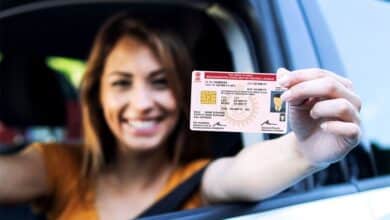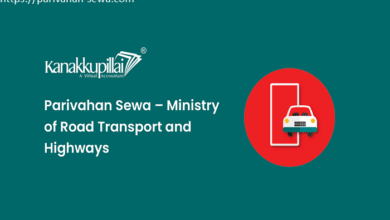The Role of the Home Parivahan Sewa Ministry: A Comprehensive Guide

The Home Parivahan Sewa Ministry plays a vital role in India’s transportation sector, focusing on managing the nation’s road safety, vehicle registration, and driver regulations. It oversees crucial aspects such as licensing, vehicle emission standards, and public safety through effective governance and policies. Established with the purpose of enhancing India’s mobility infrastructure, the ministry helps streamline road transport systems and brings improvements that cater to millions of commuters nationwide.Through the Home Parivahan Sewa Ministry, the government ensures the smooth functioning of road transportation, essential for India’s economy, health, and infrastructure. Understanding its role and functions can help citizens navigate their rights and responsibilities related to road travel. This blog explores the workings of the Home Parivahan Sewa Ministry, its services, and the impact it has on the daily lives of citizens.
The History and Evolution of the Home Parivahan Sewa Ministry
The Home Parivahan Sewa Ministry in India has evolved significantly since its inception. Initially, road transportation was loosely regulated, which led to issues like traffic congestion, lack of safety standards, and inefficient vehicle registration processes. Over time, the ministry was established to address these concerns, creating a structured system for vehicle management, registration, and compliance.Today, the ministry is responsible for modernizing the transport sector, reducing road accidents, and improving road safety standards. It has continuously worked on implementing advanced technology for services like online vehicle registration, digital driving licenses, and e-payment solutions, making it easier for people to access services through digital platforms.
Key Responsibilities of the Home Parivahan Sewa Ministry
The Home Parivahan Sewa Ministry oversees a wide range of services aimed at ensuring safe and efficient transportation in India. Some of its most critical responsibilities include:
- Vehicle Registration: Ensuring that all motor vehicles in India are registered and comply with state and national regulations.
- Driver Licensing: Issuing driving licenses after ensuring applicants meet necessary physical and mental criteria.
- Road Safety: Developing policies to reduce road accidents and improve driving standards through public awareness campaigns and enforcement of traffic rules.
- Road Transport Policies: Framing and implementing policies for the transportation of goods and passengers across the country, including the regulation of commercial vehicles.
Through these activities, the Home Parivahan Sewa Ministry significantly contributes to improving India’s road transport infrastructure and safety standards.
Services Provided by the Home Parivahan Sewa Ministry
One of the most crucial aspects of the Home Parivahan Sewa Ministry is the vast array of services it offers to citizens. From managing vehicle registrations to facilitating online services, the ministry has modernized several aspects of transport administration. Here are some of the essential services offered:
- Online Vehicle Registration: Citizens can register their vehicles online through the ministry’s digital platforms. This online service helps individuals save time and ensures a hassle-free process.
- Driving License Services: Individuals can apply for, renew, and verify their driving licenses using the ministry’s online portals, reducing the need for physical visits to regional transport offices.
- Vehicle Fitness Certificates: The ministry also issues fitness certificates to ensure that vehicles on the road meet safety and emission standards.
- Traffic Violation Records: The ministry manages records of traffic violations, helping maintain a database of infractions that can be accessed by law enforcement agencies.
These services have made the Home Parivahan Sewa Ministry indispensable to the modern road transport system in India, enhancing the convenience of citizens while improving the system’s efficiency.
Digitalization of Home Parivahan Sewa Ministry Services
In recent years, the Home Parivahan Sewa Ministry has focused on the digitalization of transport services, enabling easy access for citizens. The transition from manual processes to digital platforms has made various services more efficient, transparent, and user-friendly. For example:
- Parivahan Sewa Portal: The official portal of the Home Parivahan Sewa Ministry allows users to avail of numerous services online, from vehicle registration to payment of taxes.
- Mobile Applications: The ministry also offers mobile apps to make vehicle-related services more accessible. These apps allow users to check the status of their documents, pay fines, and access various transport-related services.
- E-Services: With the digital transformation, citizens can now obtain certificates, renew driving licenses, and even apply for new licenses through e-services, streamlining the entire process.
These technological advancements have improved the overall experience of individuals interacting with the Home Parivahan Sewa Ministry while ensuring greater accountability and transparency in the system.
The Impact of the Home Parivahan Sewa Ministry on Road Safety
The Home Parivahan Sewa Ministry plays a pivotal role in ensuring road safety in India. With millions of vehicles on the roads, the ministry enforces strict regulations designed to reduce accidents and enhance public safety. Key initiatives include:
- Safety Regulations: The ministry enforces safety regulations related to vehicle designs, crash tests, and driver behavior. It sets standards for airbags, seatbelts, and other safety features in vehicles.
- Public Awareness Campaigns: Through initiatives like “Road Safety Week,” the ministry educates the public about safe driving practices, the importance of wearing seat belts, and adhering to traffic laws.
- Traffic Management: The ministry works with local governments to improve traffic management systems, reduce congestion, and ensure smoother traffic flow.
- Accident Analysis: By analyzing accident data, the ministry develops strategies to identify high-risk areas and implement targeted road safety measures.
With these efforts, the Home Parivahan Sewa Ministry significantly contributes to reducing fatalities and injuries on Indian roads, promoting safer commuting for citizens.
How the Home Parivahan Sewa Ministry Supports the Transportation Industry
The Home Parivahan Sewa Ministry also plays an essential role in regulating and supporting the transportation industry in India. Commercial vehicles, freight operations, and passenger transport are all heavily influenced by the policies and regulations set by the ministry. Here’s how the ministry supports the industry:
- Regulation of Commercial Transport: The ministry ensures that commercial vehicles adhere to safety, environmental, and operational standards. This includes regular inspections and fitness certifications.
- Public Transport Development: It helps develop and improve public transportation systems across states, making travel more accessible to people from all walks of life.
- Environmental Policies: By promoting the use of cleaner fuels and enforcing emission standards, the ministry contributes to environmental sustainability in the transport sector.
- Fleet Management: The ministry helps streamline the operations of large fleets, ensuring they comply with national road safety and operational regulations.
By managing these aspects, the Home Parivahan Sewa Ministry creates a balanced environment where the transportation industry can thrive while maintaining road safety and environmental standards.
Challenges Faced by the Home Parivahan Sewa Ministry
Despite its successes, the Home Parivahan Sewa Ministry faces several challenges that impact the overall effectiveness of its services. These include:
- Traffic Congestion: India’s rapidly growing urban population has led to increased vehicle density on roads, causing traffic jams and delays.
- Road Safety Awareness: Despite efforts, there is still a lack of adequate awareness regarding road safety, leading to accidents and fatalities.
- Vehicle Emissions: Enforcing emission standards across the vast range of vehicles in India remains an ongoing challenge.
- Implementation of Policies: In some regions, there are difficulties in implementing policies uniformly, leading to gaps in the regulation of transport services.
Addressing these challenges requires continuous innovation, better implementation of policies, and increased collaboration with state and local governments to achieve a more sustainable transport ecosystem.
Conclusion
The Home Parivahan Sewa Ministry is a cornerstone of India’s road transport system, playing a key role in managing vehicle registrations, driver licensing, and road safety. Through its wide range of services and focus on modernization, it has improved the efficiency of India’s transport infrastructure and made significant strides in road safety. With digitalization efforts making services more accessible, and ongoing initiatives aimed at better public awareness, the ministry is poised to continue transforming the nation’s transportation landscape.As India continues to grow, the role of the Home Parivahan Sewa Ministry will remain crucial in ensuring that road transport remains safe, efficient, and sustainable for all.
FAQs
- What is the role of the Home Parivahan Sewa Ministry? The Home Parivahan Sewa Ministry is responsible for regulating road transport in India, including vehicle registration, driver licensing, and road safety initiatives.
- How can I register my vehicle online through the Home Parivahan Sewa Ministry? You can visit the official Parivahan Sewa portal and complete the vehicle registration process by submitting the required documents and making online payments.
- What services does the Home Parivahan Sewa Ministry offer? The ministry offers services such as vehicle registration, driving license issuance, vehicle fitness certificates, and traffic violation management.
- How does the Home Parivahan Sewa Ministry promote road safety? The ministry promotes road safety through regulations, public awareness campaigns, and the enforcement of safety standards in vehicles.
- What challenges does the Home Parivahan Sewa Ministry face? Challenges include traffic congestion, lack of road safety awareness, enforcing vehicle emissions standards, and implementing policies effectively across the country.





